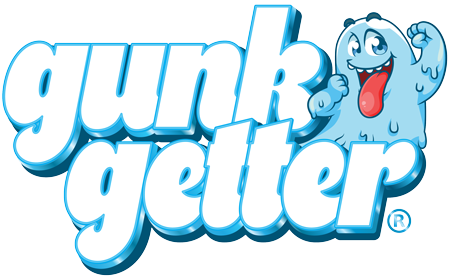Cleaning is an essential part of maintaining a healthy and inviting environment, both at home and in professional settings. But with so many cleaning products available on the market, it can be overwhelming to choose the right type for your specific needs. Understanding the various categories of cleaning products, their ingredients, and their specific applications can empower you to make informed choices. This guide will navigate you through the myriad of cleaning options available, ensuring your home or workspace remains spotless!
The Importance of Cleaning Products
Regular cleaning not only enhances the aesthetic of your surroundings but also promotes health and well-being. Dust, bacteria, and allergens can accumulate quickly, which is why using the right cleaning products is crucial. From household chores to industrial projects, cleaning products play a vital role in facilitating sanitation and hygiene.
Types of Cleaning Products
Cleaning products can be categorized into several different types, each designed for specific tasks. Understanding these types will help you choose products based on your cleaning needs.
1. All-Purpose Cleaners
All-purpose cleaners are versatile and can be used on a variety of surfaces. These products are ideal for maintaining cleanliness as they can cut through grease, grime, and stains. They are effective for cleaning countertops, bathrooms, floors, and more. All-purpose cleaners often come in spray bottles for easy application, making them a staple in many households.
2. Disinfectants
Disinfectants are crucial for killing germs and bacteria on surfaces. They are especially important in high-touch areas such as kitchens and bathrooms. These products often include strong chemicals that should be used with care, ensuring proper ventilation and avoiding contact with skin. Disinfectants can come in wipes, sprays, or liquids, offering choices that best suit your cleaning routine.
3. Glass Cleaners
For those looking to keep their windows, mirrors, and other glass surfaces sparkling, glass cleaners are a must-have. Formulated to cut through streaks and smudges, these products offer a crystal-clear finish. Some glass cleaners also have added features, such as anti-static properties, that repel dust and dirt, keeping surfaces cleaner for longer.
4. Floor Cleaners
With a variety of flooring materials available, it's important to use cleaners specifically designed for each type. Floor cleaners can range from those meant for hardwood to specific products for tile, laminate, or carpet. Often, these cleaners come in concentrated formulas, requiring dilution before use. Regularly using the appropriate floor cleaner will prolong the life of your flooring and maintain its appearance.
5. Bathroom Cleaners
Bathrooms require special attention due to humidity and the presence of mold and mildew. Bathroom cleaners are typically formulated to tackle soap scum, hard water stains, and other residues commonly found in sinks, showers, and toilets. These products often contain bleach or other antimicrobial agents to ensure thorough sanitation.
6. Kitchen Cleaners
The kitchen is one of the most used areas in any home. Thus, using effective kitchen cleaners is essential to maintain hygiene. These products can include degreasers for stovetops, disinfectant wipes for counters, and appliance cleaners for ovens and microwaves. Many kitchen cleaners are also designed to be food-safe, ensuring that surface cleansing does not introduce harmful chemicals into food preparation areas.
Natural vs. Chemical Cleaning Products
When selecting cleaning products, you may come across two primary categories: natural and chemical. Each has its place depending on your personal preferences and cleaning requirements.
Natural Cleaning Products
Natural cleaning products are often made from biodegradable ingredients derived from plants and minerals. They are typically less harsh on the environment and safer for both humans and pets. Common natural ingredients include vinegar, baking soda, and essential oils. However, while they are effective for light cleaning and freshening, they may not kill all germs, making them less suitable for areas requiring stringent sanitation.
Chemical Cleaning Products
Chemical cleaning products, on the other hand, often contain strong compounds that can tackle tough stains and disinfect surfaces effectively. They are designed for heavy-duty cleaning tasks and are typically more effective against viruses and bacteria. However, certain chemical cleaners can emit strong odors and may require precautions during use, such as wearing gloves or ensuring adequate ventilation.
Understanding Labels and Safety Precautions
Regardless of the type of cleaning product you choose, it's important to read the labels carefully. Here are some use and safety tips to keep in mind:
- Read Directions: Follow the manufacturer’s instructions for use, dilution, and application to guarantee effectiveness.
- Avoid Mixing: Do not mix different cleaning products. Combining certain chemicals can create dangerous reactions.
- Store Safely: Keep cleaning products out of reach of children and pets. Ensure they are stored in a cool, dry place away from direct sunlight.
- Ventilate: When using chemical cleaners, ensure the area is well-ventilated to avoid inhaling fumes.
- Test Surfaces: Always test on a small, inconspicuous area before applying a new cleaner to a larger surface to prevent damage.
Environmental Impact of Cleaning Products
As awareness about environmental issues grows, many consumers are becoming more conscious of the cleaning products they use. The impact of cleaning supplies on our planet can be significant, from harsh chemicals that pollute waterways to packaging waste. Here are some eco-friendly practices to consider:
Choosing Eco-Friendly Products
When shopping for cleaning products, consider opting for those labeled as Eco-friendly or biodegradable. These products are designed to break down naturally and minimize environmental damage. Look for brands that are committed to sustainability and use recyclable packaging.
DIY Cleaning Solutions
An increasingly popular trend among eco-conscious consumers is creating their own cleaning solutions at home. Simple ingredients like vinegar, baking soda, and water can often do the trick for everyday cleaning needs and are less harmful to the environment. Additionally, homemade cleaners often cost less than commercial products, making them budget-friendly alternatives.
The Future of Cleaning Products
The cleaning products industry is constantly evolving, driven by consumer demand for safer, more effective, and eco-friendly options. Innovations such as better biodegradable formulas, refillable containers, and advanced cleaning technologies contribute to a greener future. As a consumer, being aware of these trends can help you make choices that align with your values and health considerations.
Final Thoughts: Empowering Your Cleaning Journey
Choosing the right cleaning products is more than just picking a bottle off the shelf; it’s about understanding your specific needs and the implications of the products you use. By familiarizing yourself with the different types of cleaning products, knowing the significance of natural versus chemical options, and considering the environmental impact, you can tailor your cleaning routine effectively. Empower yourself with knowledge and choose cleaning solutions that keep your space spotless while being mindful of health and the environment. Happy cleaning!


Share:
Unlock a Healthier Home: The Amazing Benefits of Regular Cleaning
Seasonal Cleaning: Preparing Your Home for Each Climate